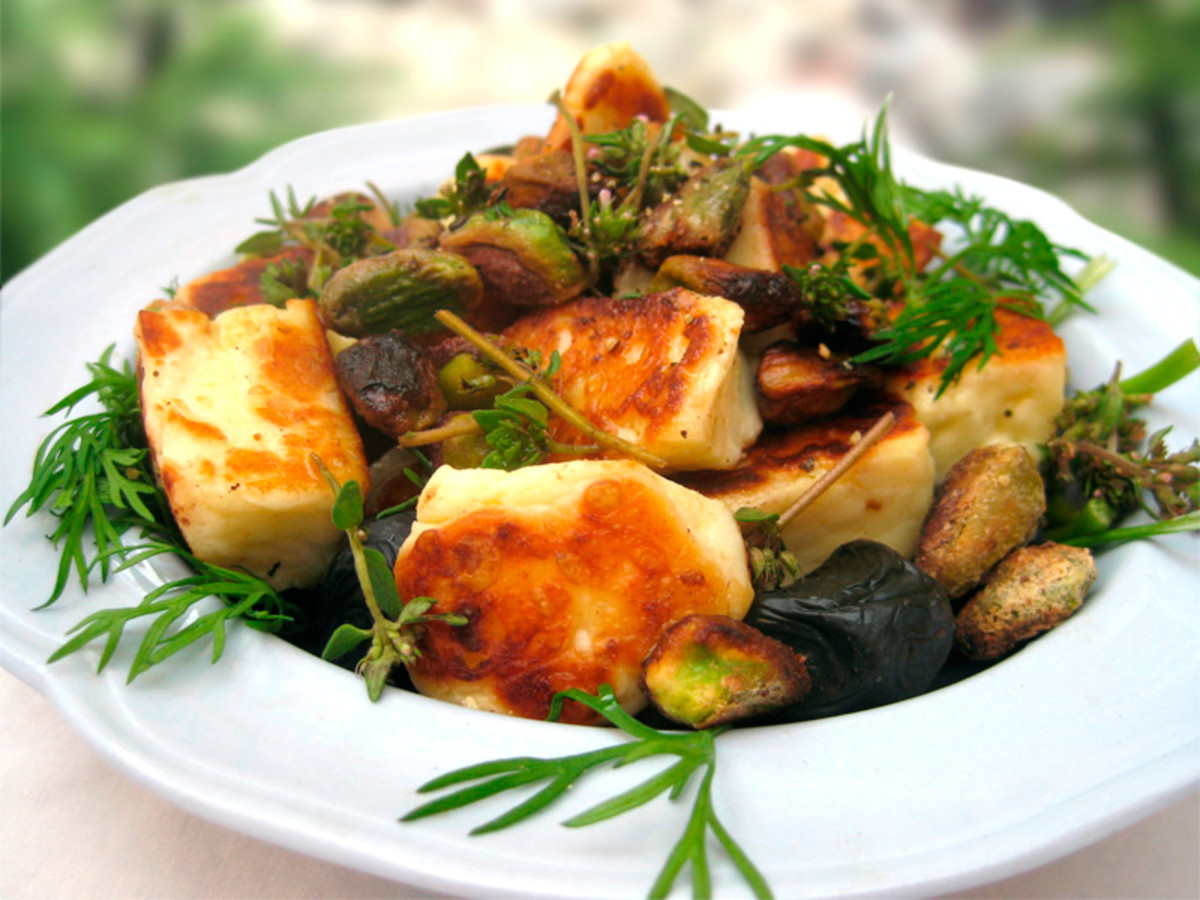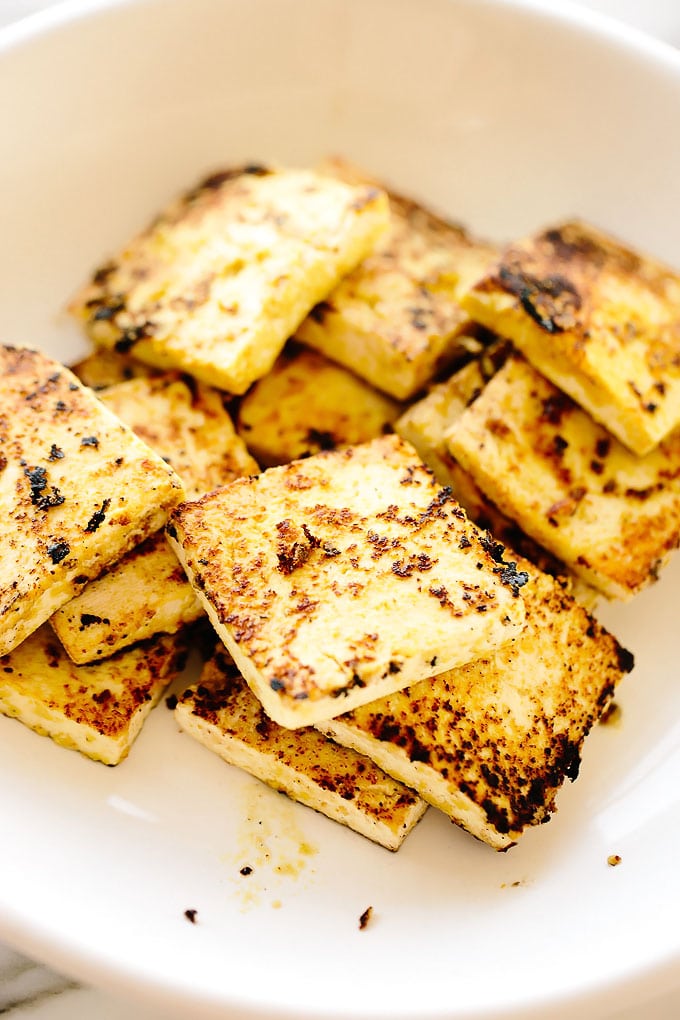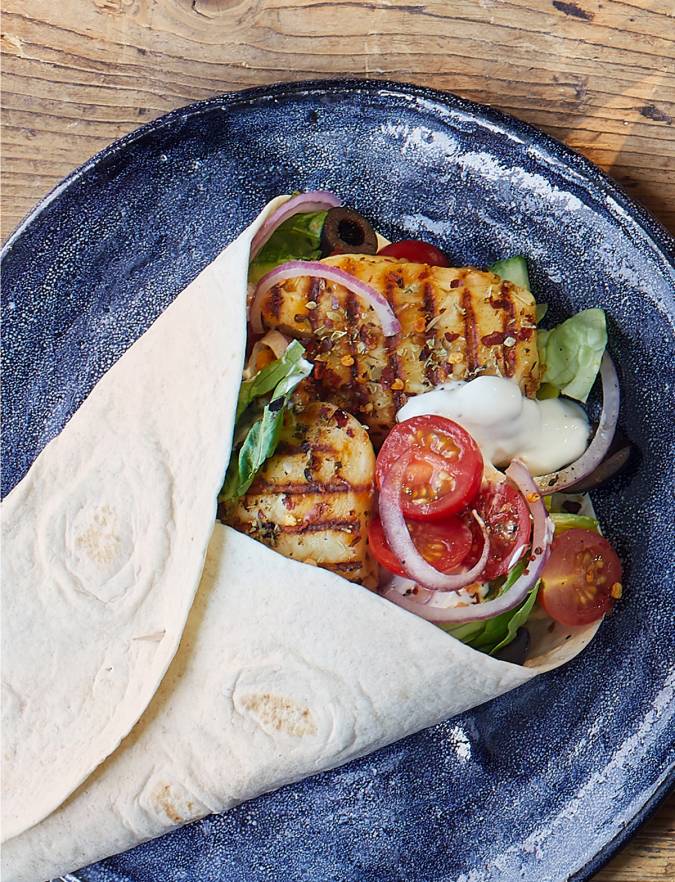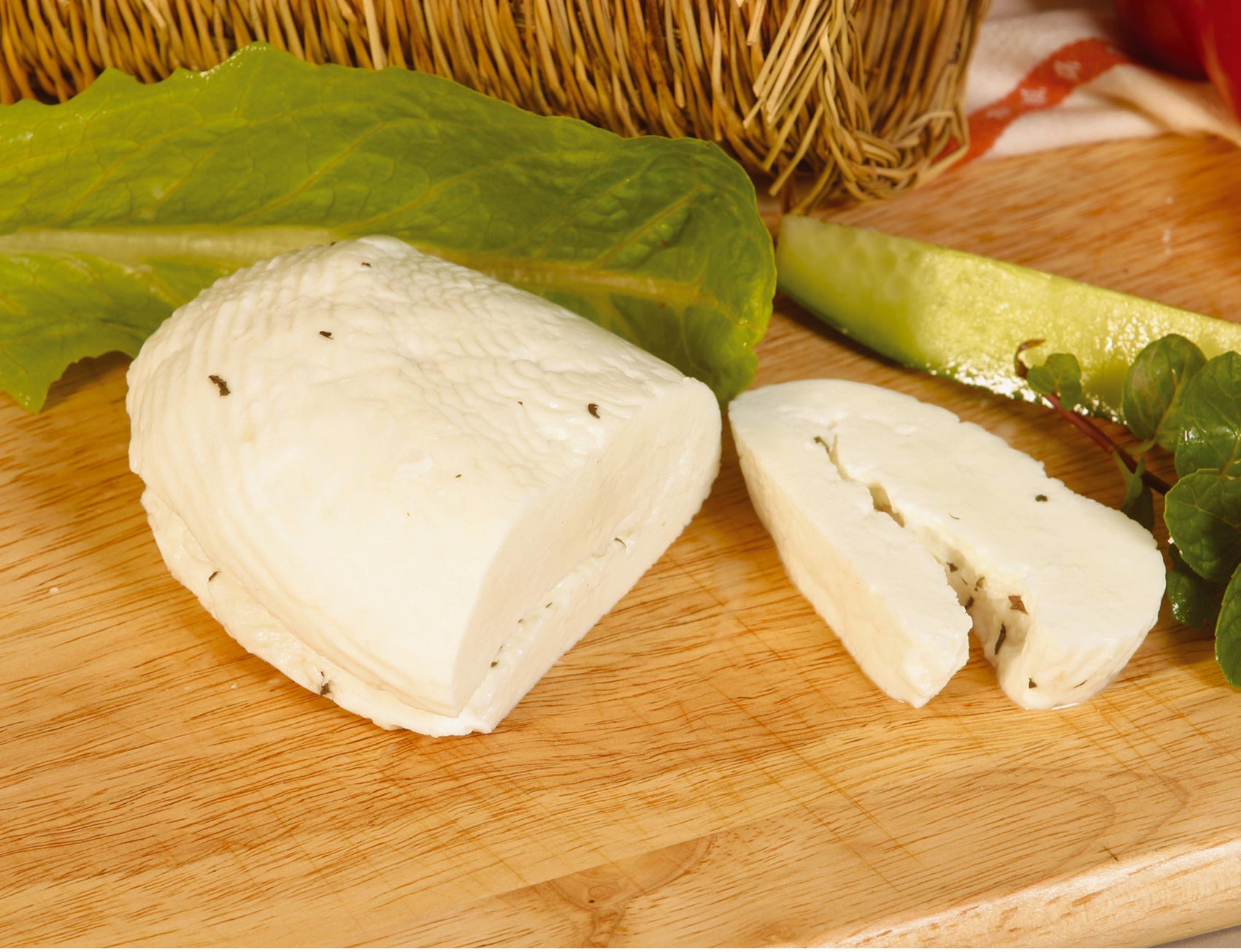
Halloumi (Frying Cheese of the Middle East) Chef Tariq Food Blog
Waldeck says the way halloumi is made - the two-step process that cooks the milk, presses the whey out of the cheese then cooks the cheese again in the whey - is the reason so many people love it. "The second cooking compounds the cheese and gives it a higher melting point," she says. "That's the secret." Cooking Halloumi Ups the Flavor

Have you tried… Halloumi? I Love Imported Cheese
Halloumi contains a small amount of lactose (1.5 g/3.5 Oz) making it one of the low-lactose dietary sources of protein & calcium for persons with lactose intolerance. Halloumi is very good source of fat-soluble vitamins, especially vitamin A. 3.5 Oz (100 g) of fresh halloumi contains 1073 IU (36% of RDI) of this vitamin.

Easy, 10Minute Fried Halloumi Recipe Delishably
Since halloumi is made from goat and/or sheep's milk (and sometimes even a bit of cow's milk), it retains a small amount of carbohydrates from lactose, the naturally occurring sugar in milk. Fats
:max_bytes(150000):strip_icc()/what-is-halloumi-cheese-3376845_color-60416fe33199417392451baa956e39de.png)
What Is Halloumi Cheese?
Some lactose free milks have more protein than others. Lactose free cow's milk and soya milk contain the most protein; oat and nut milks contain the least protein. Eat 2 - 3 portions of high protein foods daily. Non-dairy sources of protein include meat, fish, eggs, beans/pulses, tofu and nuts. Meal ideas Breakfast. Cereal with lactose free milk

Healthy Halloumi Bake with Aubergine • The Cook Report
Halloumi (also known as Haloumi) is an unripened brined cheese that originates from Cyprus. It has become hugely popular worldwide thanks to its high melting point and elastic texture. Yet, beyond its culinary allure, Halloumi offers a surprising array of nutritional benefits that often go unnoticed.

Make Your Own Cheese Homemade Cypriot Halloumi Food, Halloumi, Milk recipes
Riverina Dairy Lactose Free Haloumi cheese is a semi-hard stretched curd cheese that is light yellow in appearance, with a distinctive layered texture. Shelf Life: 4 Months from date of manufacture for packets Storage Conditions: Store at less than 5°C Sensitive Customers: Those with allergies pertaining to the consumption of milk and milk products

Is Halloumi LactoseFree? LactoseFree 101
According to lactose intolerance expert Steve Carper, author of Milk Is Not For Every Body: Living With Lactose Intolerance, there are nine cheeses that contain less than 5 grams of sugar per serving, clocking in at about 2 to 3 percent lactose.

Dairy Belnori Halloumi Cheese (200g 250g) Braeside
Lactose intolerance is the inability to fully digest the sugar (lactose) in milk and dairy products. It is caused by a deficiency of lactase, the enzyme needed to digest lactose. 2. Does halloumi cheese contain lactose? While the lactose content in halloumi cheese is lower than in other dairy products, it still contains a small amount of lactose.

Greek halloumi wraps recipe Sainsbury's Magazine
People with lactose intolerance can sometimes tolerate the levels of lactose in sheep and goat milk and therefore, halloumi. However, lots of cheaper brands mix it with cows milk which will increase the amount of lactose the halloumi contains.

Halloumi LactoseFree Lefkonitziatis
Despite common misconceptions, lactose intolerance does not necessarily mean you must entirely cut cheese out of your diet. Several types of cheese contain little to no lactose. A general.

Check Your Food (CheckYourFoods) Food, Halloumi, Cheese benefits
Sugars: 2.7g. Fat: 18.3g. Saturated: 13.0g. Protein: 25.7g. As shown, the nutrition profile does not significantly differ from regular halloumi. The 'light' version contains fewer calories and grams of fat and saturated fat, and it provides a bit more protein. Key Point: Halloumi is a good source of protein.

Finally! Company Makes DairyFree Halloumi. Here's How to Make it at Home One Green
Halloumi is a firm, squeaky cheese from the Mediterranean island of Cyprus that's traditionally made from sheep's milk and/or goat's milk (though it's sometimes augmented with cow's milk). The snow-white cheese tastes mild with only the barest hint of chèvre's farm-y aroma.
:max_bytes(150000):strip_icc()/halloumi-cheese_annotated-44ea3b3488b24fa4a61413e5e240a798.jpg)
Halloumi Cheese Nutrition Facts and Health Benefits
Halloumi is a type of semi-hard, unripened, brined cheese that originates from the island of Cyprus in the Eastern Mediterranean. It's traditionally made from a mixture of goat's and sheep's milk, although some versions also include cow's milk.

This halloumi recipe for fried halloumi bites with hot spicy honey sauce is an easy gluten free
Cow's milk contains on average 4800mg/100g of lactose whereas sheep's milk is typically around 4700mg/100g and goat's milk 4200mg/100g. Statistically speaking, people who are lactose intolerant start to show symptoms of discomfort when they consume in excess of 12000mg (12g) of lactose.

vegan halloumi Vegan halloumi, Halloumi, Food
Lactose intolerance is a digestive disorder that affects individuals who have difficulty digesting lactose, a sugar found in milk and dairy products. These individuals lack the enzyme lactase, which is responsible for breaking down lactose into glucose and galactose. As a result, undigested lactose can cause uncomfortable symptoms.

This halloumi bake perfectly combines the healthy freshness of vegetables with the chewy, salty
Halloumi Nutrition. While not necessarily a healthy superfood, halloumi cheese is high in protein and calcium. However, halloumi is quite high in sodium, so it's important to eat it in moderation. A 100g serving of halloumi cheese contains: Calories: 343. Fat: 25g. Protein: 20g. Carbohydrates: 0g. Sugar: 0g.